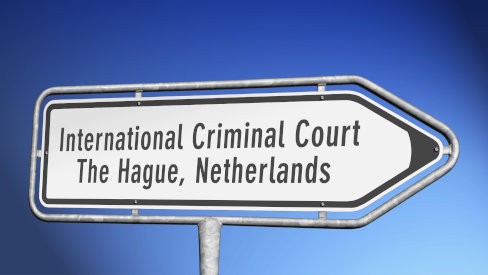What is the International Criminal Court (ICC)?
Who do those committing international crimes of the most serious kind, such as genocide and war crimes, answer to?
In the not too distant past, there was no clear answer to this question.
The International Criminal Court (ICC) was formed to investigate and prosecute individuals committing grave crimes which are of concern to the international community.
Complementing national Courts and seen as an option of ‘last resort’, the ICC is governed by an international treaty called the Rome Statute.
On its website, the ICC provides some insight into the crimes it works to combat, how trials are conducted, and the rights of all parties involved.
The Rome Statute and key crime types
The Rome Statute was created in 1998, taking effect in 2002 upon the ratification of 60 States. Currently, 123 countries are States Parties to the Rome Statute, including Australia.
This international treaty serves as the ICC’s guiding legal instrument, defining the four main crimes over which the Court has jurisdiction:
- Genocide – specific intent to destroy in whole or in part a national, ethnic, racial or religious group by killing its members or by other means
- War crimes – e.g. torturing/killing persons, attacking hospitals, educational or religious institutions
- Crimes against humanity – e.g. murder, rape and sexual slavery
- Aggression – the use of armed force by a State against the sovereignty, integrity or independence of another State.
The ICC’s jurisdiction over the crime of aggression originates from amendments to the Rome Statute adopted in 2010. Australia has not ratified the 2010 amendments, and as such the crime of aggression is not criminalised under Australia’s domestic law.
In addition to defining these crime types, the Rome Statute also helps to ensure fair trials, the rights of the defence, and sets standards for victims’ representation in Court.
ICC Trials
The ICC’s 18 judges conduct fair trials, issue arrest warrants or summonses to appear, authorise victims to participate, order witness protection measures, and more.
The Court has three Judicial Divisions, which hear matters as different stages of the proceedings: Pre-Trial, Trial and Appeals.
Cases are brought before the ICC by the Office of the Prosecutor, an independent organ of the Court which conducts preliminary examinations to determine whether the requirements are met to initiate an investigation, and whether the ICC has jurisdiction.
Jurisdiction is generally satisfied in cases where the State in question has accepted the jurisdiction of the Court, or where the crimes were referred to the ICC Prosecutor by the United Nations Security Council (UNSC). Typically, the country in whose territory the crimes were committed or whose nationals committed the crimes, will have primary jurisdiction. The ICC will have jurisdiction if the country is not willing or is unable to investigate and prosecute the crimes.
Defence
Defence teams are independent of the ICC and must be qualified to practice before the Court.
The Rome Statute grants the defendant specific rights, including the right:
- to remain silent
- to be informed of the charges
- to have adequate time and resources to prepare a defence
- to be tried without undue delay
- to freely choose a lawyer
- to examine witnesses and present evidence
- to receive from the Prosecutor evidence which may show innocence or mitigate guilt
- to be able to follow the proceedings in a language they fully understand
Defendants are presumed innocent until proven guilty beyond reasonable doubt before the Court.
Victims
Victims include both individuals and organisations such as schools, hospitals or religious institutions, who have suffered harm as the result of a crime. They have the right to present their views and concerns to the ICC and may also claim reparations if the accused is convicted.
Victims can apply to participate in judicial proceedings before the ICC and be represented by a lawyer in Court.
Relevant Court staff are trained to work with victims and address their specific needs, particularly children, elderly persons, persons with disabilities and victims of sexual or gender violence.
Witnesses
Witnesses from communities which have suffered crimes may also provide valuable evidence in proceedings. Whilst a witness may also be a victim (dual-status witnesses), other types of witnesses include:
- Insider witnesses – has a direct connection with the accused
- Expert witnesses – e.g. forensic experts
- Overview witnesses – help establish facts about the context in which a conflict occurred, and can include, for example, professors or NGO representatives.
The ICC offers a witness and victim protection program.
International Cooperation
The ICC does not have its own police force or enforcement body. It therefore relies on cooperation with countries worldwide for support, particularly for making arrests, transferring arrested persons to the ICC detention centre in The Hague, freezing suspects’ assets, and enforcing sentences.



